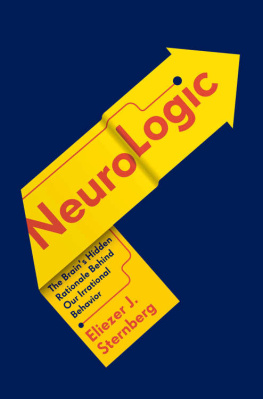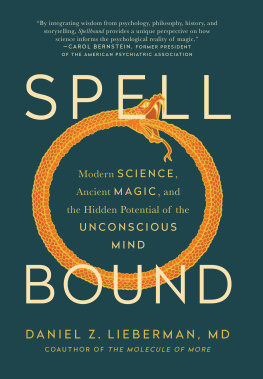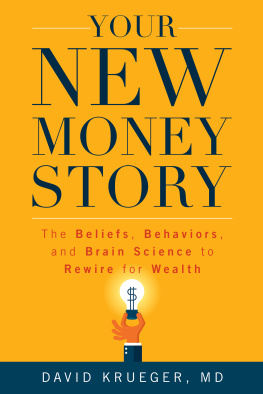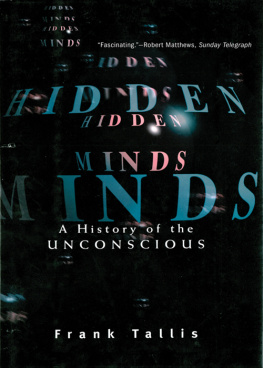Also by Eliezer J. Sternberg
Are You a Machine?
My Brain Made Me Do It
Copyright 2015 by Eliezer J. Sternberg
All rights reserved. Published in the United States by Pantheon Books, a division of Penguin Random House LLC, New York, and distributed in Canada by Random House of Canada, a division of Penguin Random House Canada Ltd., Toronto.
Pantheon Books and colophon are registered trademarks of Penguin Random House LLC.
Library of Congress Cataloging-in-Publication Data
Sternberg, Eliezer J.
NeuroLogic : the brains hidden rationale behind our irrational behavior / Eliezer J. Sternberg.
pages ; cm
Includes bibliographical references and index.
ISBN 978-0-307-90877-3 (hardcover : alk. paper)
ISBN 978-0-307-90878-0 (eBook)
1. Cognitive neuroscience. 2. Neuropsychology. 3. Subconsciousness 4. Perception (Philosophy) I. Title. II. Title: NeuroLogic.
QP360.5.S74 2016 612.8233dc23 2015016491
www.pantheonbooks.com
Cover design by Oliver Munday
eBook ISBN9780307908780
v4.1
a
For Sharona
and our beautiful son, Alex
In all chaos there is a cosmos, in all disorder a secret order.
Carl Jung, The Archetypes and the Collective Unconscious
Contents
1. WHAT DO THE BLIND SEE WHEN THEY DREAM?
On Perception, Dreams, and the Creation of the External World
2. CAN ZOMBIES DRIVE TO WORK?
On Habit, Self-Control, and the Possibility of Human Automatism
3. CAN YOUR IMAGINATION MAKE YOU A BETTER ATHLETE?
On Motor Control, Learning, and the Power of Mental Simulation
4. CAN WE REMEMBER THINGS THAT NEVER HAPPENED?
On Memory, Emotion, and the Egocentric Brain
5. WHY DO PEOPLE BELIEVE IN ALIEN ABDUCTIONS?
On Paranormal Experience, Narrative, and the Development of Strange Beliefs
6. WHY DO SCHIZOPHRENICS HEAR VOICES?
On Language, Hallucinations, and the Self/Nonself Distinction
7. CAN SOMEONE BE HYPNOTIZED TO COMMIT MURDER?
On Attention, Influence, and the Power of Subconscious Suggestion
8. WHY CANT SPLIT PERSONALITIES SHARE PRESCRIPTION GLASSES?
On Personality, Trauma, and the Defense of the Self
Introduction
Our Unconscious Logic
The mind has its own logic but does not often let others in on it.
Bernard DeVoto
Walter had been acting strangely. When friends or family visited, he ignored them unless they spoke directly to him. Until they uttered a sound, it was as if they werent even there. While walking around his living room, Walter stepped right into his coffee table, then into the wall. He missed widely when reaching for a cup of coffee and knocked over a vase instead. At age fifty-five, Walter was having problems with his vision, yet, inexplicably, he said there was nothing wrong with his eyesight. But why, Walters family wondered, would he deny it? Why wouldnt he seek out help? Confused, they pressed him to go see a neurologist. Walter reluctantly agreed. When he arrived, Walter had the following exchange with his doctor:
NEUROLOGIST: How are you?
WALTER: Fine.
NEUROLOGIST: Anything wrong with you?
WALTER: No. Everythings perfect.
NEUROLOGIST: Anything wrong with your vision?
WALTER: No. Works fine.
NEUROLOGIST (showing a pen): Then can you tell me what this is?
WALTER: Doc, its so dark here; nobody can see anything.
With daylight streaming in through the window, the room was plenty bright. Nevertheless, the doctor humored him.
NEUROLOGIST: I put the light on. Can you now see what I have here?
WALTER: Look, I dont want to play games with you.
NEUROLOGIST: Fair enough. But can you describe how I look?
WALTER: Sure. You are a small, fat chap.
The doctor, who was actually tall and thin, understood that Walter wasnt simply denying that he was blind. He actually didnt realize it. Was he delirious? Was it early Alzheimers? Perhaps he needed to speak with a psychiatrist.
The neurologist could infer that there was a connection between Walters loss of sight and his delusion that everything was fine. Behavioral tests, however, would not be able to identify that connection. He would have to peer inside Walters brain. A CT scan of his head revealed that Walter had suffered a massive stroke, causing damage to both sides of his occipital lobe, which processes vision. That explained the blindness. But the CT showed something else: damage to the left parietal lobe. Among its many functions, the parietal lobe helps interpret sensory signals, especially visual ones. It compiles the basic visual information sent from the occipital lobe and integrates it to help construct a streamlined picture of the world. The parietal lobe is involved in monitoring how the visual system is working. But what if that monitoring function were impaired?
Walter was diagnosed with Antons syndrome, a rare disorder in which blind people dont realize they are blind. Patients with Antons syndrome tend to make excuses for their perceptual mistakes, such as Im not wearing my glasses or Theres a lot of glare from the sun. As one theory goes, this happens because there is a disconnect between the visual system and the brain regions that monitor it. As a result, the brain never gets the message that theres a problem with vision. Thats why Walter didnt realize he was blind.
But this story goes deeper still. Not only did Walter fail to admit his blindness, but he came up with an alternative explanation for his symptoms (Its so dark here). Walters brain was faced with a confusing situation. On the one hand, the brain was having trouble perceiving the world. On the other hand, because of the stroke, the brain didnt know that the visual system had been destroyed. What could explain a loss of sight in a person with an intact visual system? It must be dark in here. Faced with contradicting pieces of information, the brain came up with a story to reconcile them. And it was a pretty good one. You might even say that given the circumstances it was perfectly logical.
Deep within our subconscious, there is a system that quietly processes everything we see, hear, feel, and remember. Our brains are constantly bombarded by innumerable sensations streaming in as we interact with our surroundings. Like a movie editor who collects and organizes all the footage and audio to create meaningful stories, the underlying logical system in the brain assembles all of our thoughts and perceptions into a sensible narrative, a narrative that becomes our life experience and sense of self. This book is about that underlying logic and how it creates our conscious experience, whether in those suffering from the weirdest neurological illnesses or during our simplest day-to-day feelings and decisions.
Our objective will be similar to that of other books in the popular science and psychology domain: Can we discover the underlying reasons for the way we think and act? However, we will take a different approach. Many books you might have encountered on the brain rely on behavioral research that, while enlightening in its own right, often doesnt look inside the brain to tell us where that behavior comes from. Suppose I give you a machine hidden inside a black box and ask you to figure out how it works. The catch, however, is that I dont let you see whats inside. All the gears and pulleys and levers are concealed within the dark encasing. How would you assess what the machine does? Without the ability to examine the underlying mechanics, all you can do is try using the machine in various ways and look for patterns. From there, you can













